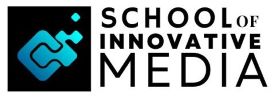INTRODUCTION
This module provides an introduction to the field of radio production and broadcasting. It covers the fundamental aspects of radio production, including the history and evolution of radio, the roles and responsibilities of radio professionals, and the essential skills and techniques required for successful radio production and broadcasting.
Course Title: Radio Production and Broadcast
Course Overview:
This course provides students with a comprehensive understanding of the principles, techniques, and skills required for successful radio production and broadcasting. Students will learn how to create compelling radio content, operate studio equipment, manage on-air broadcasts, and develop their voices and communication skills for effective radio presentation.
COURSE FORMAT:
In Person
- Real-world examples and case studies.
- Practical assignments and exercises to apply learned techniques.
- Live Q & A sessions with experienced TV presenters.
- Peer-to-peer collaboration through discussion forums.
- On-camera practice sessions for hands-on experience.
COURSE OUTLINE
Module 1: Introduction to Radio Production and Broadcast
- Introduction to radio as a medium
- Evolution of radio broadcasting
- Radio’s role in the digital age
- Overview of different types of radio stations and formats
- Ethics and responsibilities in radio broadcasting
Module 2: Radio Content Creation and Scriptwriting
- Identifying target audiences
- Writing for the ear: Scriptwriting techniques
- Structuring radio content: News, features, interviews, and commercials
- Using sound effects and music to enhance storytelling
- Creating engaging radio advertisements
Module 3: Voice and Presentation Skills
- Developing vocal variety, pitch, and tone
- Effective modulation and pronunciation
- Improving diction and articulation
- Building confidence and on-air presence
- Conducting interviews and interacting with guests
Module 4: Radio Studio Operations and Equipment
- Overview of radio studio components
- Operating microphones, headphones, mixers, and audio processors
- Understanding soundboards and audio routing
- Managing technical aspects during live broadcasts
- Troubleshooting common technical issues
Module 5: Non-Linear Editing for Radio
- Introduction to audio editing software (e.g., Audacity, Adobe Audition)
- Importing, editing, and arranging audio clips
- Enhancing audio quality: Equalization, noise reduction, and compression
- Creating seamless transitions and segues
- Exporting edited content for broadcast
Module 6: Live Broadcasting and Presentation
- Planning and preparation for live broadcasts
- Handling unexpected situations on air
- Time management and pacing during live shows
- Engaging with listeners through calls, messages, and social media
- Adapting to different show formats: Music shows, talk shows, news broadcasts, etc.
Module 7: Media Enterprise and Entrepreneurship
- Introduction to radio business models
- Monetization strategies for radio stations
- Creating and pitching radio show ideas
- Marketing and branding for radio programs
- Legal and regulatory considerations in radio broadcasting
Module 8: Disruptive Innovation in Radio
- Impact of digital platforms and streaming on traditional radio
- Exploring podcasting and on-demand audio content
- Navigating challenges and opportunities in the digital landscape
- Leveraging social media and online communities for radio promotion
- Future trends and the evolving role of radio professionals
Assessment:
- Quizzes and assessments on each module
- Group projects involving creating and presenting radio content
- Individual assignments such as scriptwriting, audio editing, and on-air presentations
Final project:
Conceptualize, produce, and present a live radio show
Certification:
Upon successful completion of the course and assessments, participants will receive a certificate in Radio Production and Broadcast.
————
Radio Production & Broadcasting
9th – 11th July.2025
In Person
₦150,000


